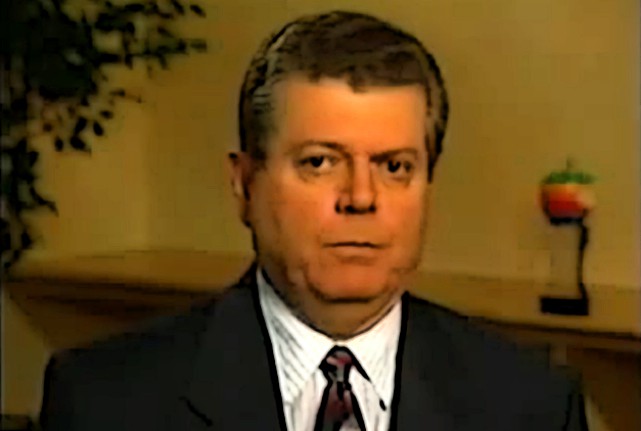 July 6, 1997: Following a massive quarterly loss for Apple, board member Edgar S. Woolard Jr. calls CEO Gil Amelio and informs him that he needs to step down. “You’ve done a lot to help the company, but the sales haven’t rebounded,” Woolard says.
July 6, 1997: Following a massive quarterly loss for Apple, board member Edgar S. Woolard Jr. calls CEO Gil Amelio and informs him that he needs to step down. “You’ve done a lot to help the company, but the sales haven’t rebounded,” Woolard says.
Steve Jobs, who recently returned to the company he co-founded, denies being responsible for Amelio’s ouster. However, the move results in Jobs becoming Apple CEO for the first time. Now it’s time for a real turnaround!
Gil Amelio: Turnaround artist?
Amelio came to Apple with a strong reputation as a turnaround artist who could revive the company’s failing fortunes in the mid-1990s.
He faced five major problems when he began his tenure as Apple CEO in February 1996: lack of money, low-quality products, unfocused research and development, a failing Mac OS operating system strategy and a toxic corporate culture.
Amelio imposed drastic solutions. He downsized Apple’s workforce by about a third, slashing 5,600 jobs in a bid to cut expenditures. He said Apple would double down on its decision to license Mac OS to clone-makers.
His most significant move, however, probably hurt him in the long run — although it ultimately saved Apple.
Apple buys NeXT
In December 1996, Apple bought NeXT, the computer company Jobs founded after leaving Apple a decade earlier. The $429 million deal brought Jobs back to Apple to support Amelio as an adviser. The primary reason for buying NeXT was to get hold of its next-gen operating system, which eventually morphed into OS X.
At the time, Apple had been struggling with its ill-fated Copland OS, which was designed to replace the aging System 7.
Amelio out, Jobs in
From an outsider perspective, three events conspired to cost Amelio his job at Apple.
The first was that his changes weren’t aggressive enough. Apple desperately needed new ideas and strategies. But Amelio wasn’t viewed as the type of marketing genius who could deliver them. Unlike the tightly polished media events Apple delivers today, Amelio’s meandering speeches proved short on substance.
The second was a disastrous quarter that occurred under his leadership. In June 1997, Apple’s latest quarter contributed to an overall deficit of $1.6 billion that had accumulated during Amelio’s reign. The slump effectively wiped out every cent of profit Cupertino had earned since fiscal 1991.
The third factor was Jobs, who was now a far more seasoned corporate in-fighter than the unpolished leader who had been forced out of Apple 12 years earlier. Regardless of whether Jobs pulled strings behind the scenes to oust Amelio, he was perceived by Apple’s board as being a solid candidate for running the company. By 1997, Jobs had become a billionaire thanks to his role running Pixar. He seemed to hold many of the answers Apple needed.
Amelio leaves with a windfall
When asked to leave Apple, Amelio initially protested. He said he simply needed more time to turn the company around. As it happened, Jobs later pursued many of Amelio’s strategies — simplifying Apple’s product lines, hoarding cash, releasing some great products. (In fact, Jobs would take them one step further.)
In the end, Amelio left Apple with a high-seven-figure payout and 130,960 shares of AAPL stock.
After leaving Cupertino, Amelio became a venture capitalist. He co-founded Acquicor Technology with Apple co-founder Steve Wozniak and former Apple CTO Ellen Hancock.
Do you remember the Gil Amelio years at Apple? Leave your comments below.


